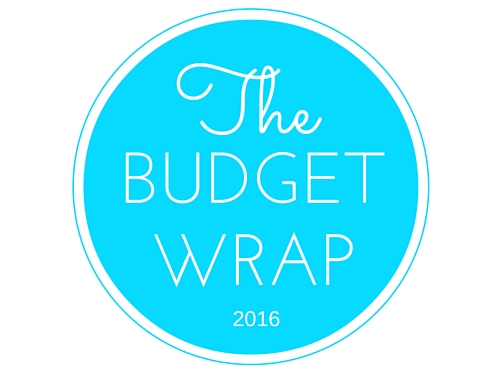Categories
The Budget Wrap 2016

The Budget was delivered last night and there is a mix of good and bad news for our clients and prospective clients at Paris Financial. I will try and zero in on the key points and give some comment. The very large caveat here is that all this budget information is NOT law yet but everyone should be moving and starting to think about the consequences of these changes.
Individual Tax Brackets
Firstly people in the middle and higher tax brackets will get some help with an increase in the 32.5 per cent tax threshold from $80,000 to $87,000. This will stop about 500,000 taxpayers facing the 37 per cent marginal tax rate, if and when they move into this tax bracket through wage growth.
Small to Medium Business Enterprises
The company tax rate for small to medium-sized enterprises (SMEs) will reduce to 27.5 per cent from 28.5 per cent starting 1 July 2016, building on the small business tax cut in the 2015 budget. Further, the government proposes to extend the 27.5 per cent rate to companies with an annual turnover of less than $10 million, up from $2 million starting 1 July 2016. The reduced tax rate is a bonus but the increase in the threshold to $10 million is an even bigger positive as more businesses will benefit.
The other big positive is that from 1 July 2016, the current $2m turnover threshold for SME’s will be increased to $10m and will those businesses will have access to:
- simplified depreciation rules including immediate tax deductibility for depreciating asset purchases costing less than $20,000 until 30 June 2017
- simplified trading stock rules, giving the option to avoid end of year stocktake if the value of stock has changed by less than $5,000
- a simplified method of PAYG instalments calculated by the ATO, removing the risk of under or over estimating PAYG instalments and the resulting penalties that may be applied
- the option to account for GST on a cash basis and pay GST instalments as calculated by the ATO
- other tax concessions currently available to small business, such as FBT exemptions
Noting that these threshold changes do not affect eligibility for the small business capital gains tax concessions which will remain at a $2m turnover test or a maximum net asset value of $6m.
Superannuation
There are major changes proposed in Superannuation. Firstly Concessional caps will be able to carry forward for up to five years by individuals where balances are $500,000 or less to enable catch-up superannuation contributions. This is a positive for small business and stay at home parents who take time out of their careers to look after the family.
The restrictions for people aged below 75 allowing a tax deduction for personal contributions to eligible superannuation funds up to the concessional cap will be lifted. In addition the work test for people aged over 65 will also be lifted, making this area of complexity in superannuation simpler and benefiting many retirees.
From the 1 of July 2017 the taxation of earnings in Transition to Retirement Pensions (TRAPS) within super will reduce the incentive for them to be used to minimise tax. This is a major change and a change that will require remedial action with our Financial Planner Darren Foster as soon as possible. Bad News for those wanting to reduce their time at work and spend more time on leisure or family activities as they approach retirement.
A new $500,000 lifetime non-concessional cap will be introduced starting from 7.30 pm Budget night, 3 May 2016. This cap includes contributions since the 1 of July 2007 and is more bad news for many people who are saving for their retirement via super. There is much advice required over the next few months to answer queries regarding this change but it is a substantial change.
In addition, Retirees with superannuation account balances in excess of $1.6 million will be required to reduce their retirement balance to $1.6 million by 1 July 2017. Excess balances for these people may be converted to superannuation accumulation phase accounts – thus losing their tax-free status. There is much more to come out in the fine print here over the coming weeks, but again, there is work to be done to adjust to this new regime and it will affect many people planning for their retirement.
For High Income Earners the 30 per cent contributions tax rate will now be imposed on people earning $250,000 a year (including concessional contributions), down from $300,000. At the same time, the government will reduce the annual concessional contributions cap to $25,000 a year. This is all bad news for those planning for their retirement.
So, they’re the changes affecting our clients and potential clients in a tightly packed nutshell. Of course if you have any queries please talk to myself or fellow Partners at Paris Financial (03) 8393 1000.
Pat Mannix, Partner, Paris Financial
Follow me on Twitter @mannix_pat
